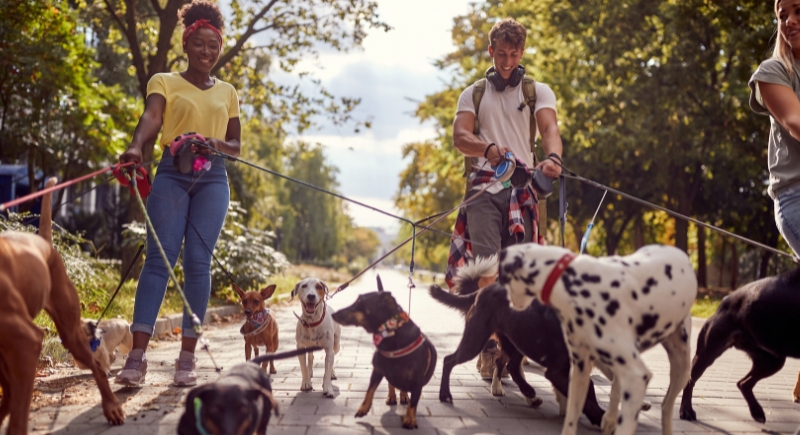The Pet Industry Is Being Taken Over by the Ultra-Rich
Vet bills now trigger the kind of sinking feeling people used to get from unexpected notices in the mail. A quick visit that once felt routine can suddenly resemble the cost of a small home repair. Clinics present long lists of tests and treatments, prices rise each year, and the card gets charged before anyone has time to think.
At the same time, pets have become central to many households. Families treat them as companions, stress relievers, and sources of comfort, and spending has grown right along with that attachment. What often stays hidden is the growing power of wealthy investors and corporations shaping the industry behind the scenes, influencing everything from vet care to the products people buy.
Pet Spend And Younger Households

Image via Getty Images/svetikd
Households across the United States now include animals in large numbers, with approximately 70 percent sharing space with at least one pet. Spending reached approximately $ 123 billion in 2021, and the trend shows no signs of slowing.
Many people treat animal care as a top priority. Vet visits, grooming, treats, toys, and boarding stack up quickly, and companies understand how strong that attachment is. That emotional pull helps explain why plenty of people take on debt to cover medical procedures, even paying off balances years after a pet has passed away.
Consolidation In Vet Care
A surprising slice of the vet world now sits in the hands of ultra-wealthy investors. An estimated quarter of general veterinary services are owned by billionaires or private equity firms, up from just five percent a decade ago. Specialty clinics are even more deeply entrenched in this trend, with approximately 75 percent controlled by these financial powers.
Prices in vet care jumped more than 60 percent over the last decade, outpacing inflation by a wide margin. Large players buy local clinics, keep the familiar signs, retain the same staff, and most clients never notice a change in ownership. These groups build profit by adding tests, pushing higher-cost interventions, and tightening payroll. It creates a system where compassion still exists at the exam table, but financial decisions live somewhere else entirely.
Platforms And Pet Services

Image via Getty Images/Lucky Business
Walking dogs or pet sitting once relied on neighborhood chatter. Now tech platforms dominate that world. One major app collects a cut of around 20 percent out of what walkers earn and adds an 11 percent booking fee that can reach $50. The company behind that app changed hands in a cash deal valued at about $2.3 billion, backed by a massive private equity giant.
Workers on the app talk about long response times, safety concerns, and terms that leave them exposed to risk. Owners using the service pay more, providers take home less, and the platform sits in the middle collecting revenue. It shows how even the simple act of paying someone to check on a pet has become part of a larger money machine.
Pet Food And Retail Giants
If you look down the aisle at common pet food brands, an interesting pattern will appear. About 95 percent of those labels belong to six conglomerates. One of those conglomerates is linked to a family worth about $117 billion. That same group controls thousands of pet hospitals, an online pharmacy, and even kitty litter. Another international firm owns over a thousand clinics and has a long history tied to global business empires. Retail chains that sell treats, tanks, and toys also sit under private equity umbrellas. So every bag, can, or squeaky plush connects to boardrooms that view the pet sector as a reliable and expanding revenue source.
Wealthy investors target parts of daily life with strong demand, little regulation, and high emotional pull. Pets check every box. So the next time a bill catches you off guard or a simple leash costs more than you expected, remember that the pet industry shifted into a playground for the ultra-rich, and they know exactly how much people are willing to pay for wagging tails and content purrs.